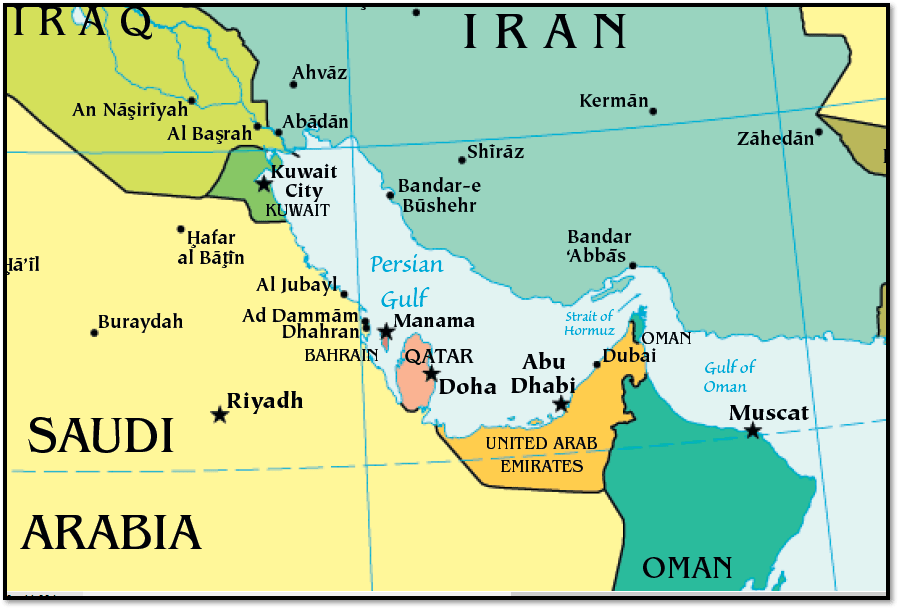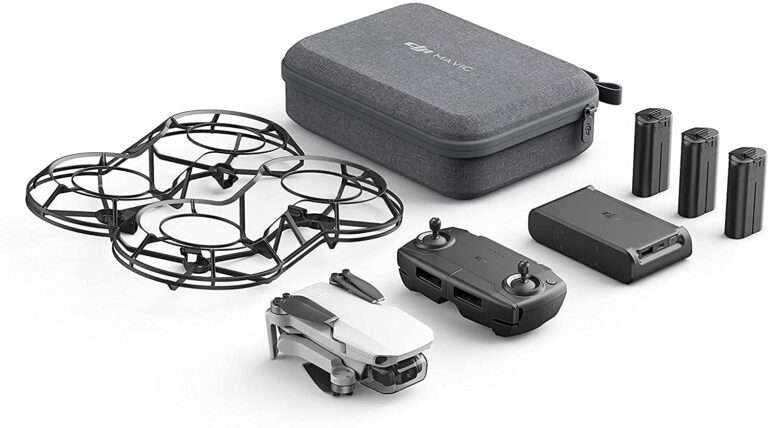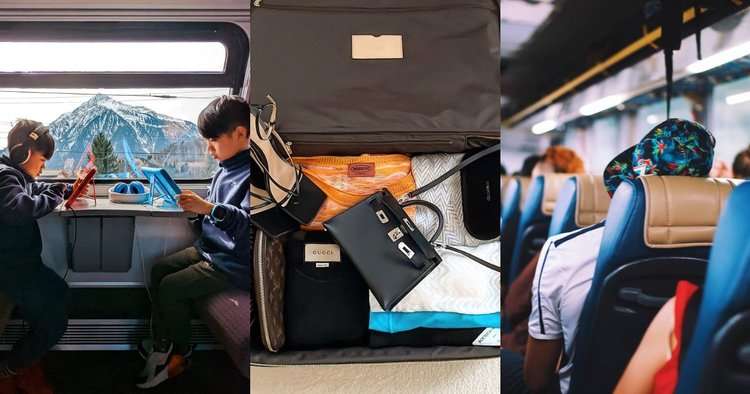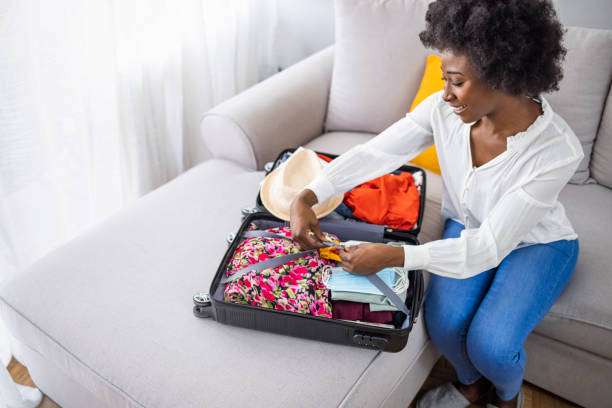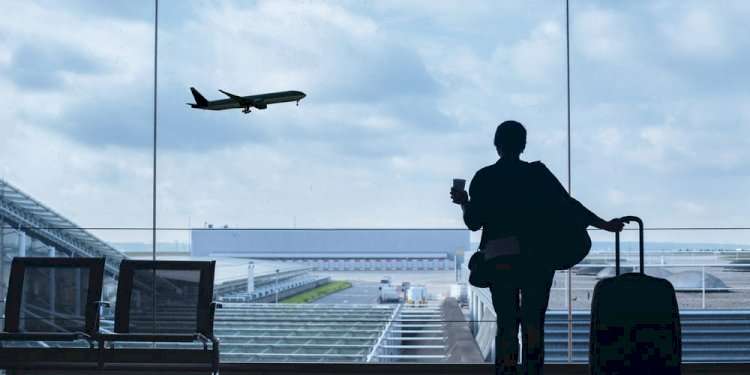The Persian Gulf is a fascinating region that’s not often talked about in travel blogs, but it has so much to offer. Located between the Middle East and Asia, this area is full of unique cultures, incredible landscapes, and amazing cities. If you’re looking for a place where ancient history meets modern luxury, the Persian Gulf countries are perfect destinations. Whether you like exploring big cities, relaxing on beautiful beaches, or learning about different cultures, you’ll find something you love here. Let’s explore the best countries to visit in the Persian Gulf, where every country has its own unique charm.
United Arab Emirates (UAE)
The United Arab Emirates, or UAE for short, is one of the most popular destinations in the Persian Gulf. It’s famous for its amazing skyscrapers, luxury shopping malls, and rich culture. The UAE is made up of seven smaller regions, called emirates, and each one offers different experiences.
- Dubai: Dubai is probably the most famous city in the UAE. It’s known for its super tall buildings, like the Burj Khalifa, which is the tallest building in the world. Dubai also has the biggest shopping mall on the planet, The Dubai Mall, where you can find almost anything you want—from high-end fashion to fun attractions like an indoor aquarium and ice skating rink. If you’re interested in culture, visit the Al Fahidi Historical Neighborhood to see what Dubai looked like before all the skyscrapers were built. And don’t forget about the desert! You can go on a desert safari to ride camels, try sandboarding, or even camp under the stars.
- Abu Dhabi: Abu Dhabi is the capital of the UAE and offers a mix of cultural and modern experiences. The Sheikh Zayed Grand Mosque is a must-see; it’s one of the largest mosques in the world and is stunningly beautiful with its white marble and huge chandeliers. If you’re into fast cars, Ferrari World is the place to be—it’s an amusement park with the fastest roller coaster in the world! Abu Dhabi also has a lot of parks and beaches where you can relax and enjoy the sunshine.
- Ras Al Khaimah & Fujairah: These are quieter parts of the UAE, perfect for nature lovers. Ras Al Khaimah has mountains, desert landscapes, and even a long zip line for adventure seekers. Fujairah, on the other hand, is known for its beautiful beaches and underwater diving spots where you can see colorful fish and coral reefs.
Why Visit the UAE? You should visit the UAE for its exciting mix of modern cities, luxury shopping, beautiful beaches, desert adventures, and rich cultural experiences.
Qatar
Qatar is a small but wealthy country that’s becoming more and more popular with tourists. It’s a place where the old meets the new—modern skyscrapers sit right next to traditional markets.
- Doha: Doha is the capital city of Qatar, and it’s full of exciting things to see and do. The city’s skyline is filled with unique and futuristic buildings. If you’re interested in learning more about Qatari culture, visit the Museum of Islamic Art or the National Museum of Qatar. These museums are not only informative but also stunning pieces of architecture themselves. For shopping and eating, head to Souq Waqif, a traditional market where you can buy everything from spices to handmade crafts, or try local foods like shawarma and falafel.
- Desert Adventures: Just outside Doha, you can experience the vast deserts of Qatar. You can go dune bashing in a 4×4 vehicle, try sandboarding, or even ride a camel. If you want a truly magical experience, consider spending a night at a desert camp where you can see the stars like never before.
- Al Khor & Al Zubarah: These are quieter towns that offer a glimpse into Qatar’s past. Al Khor is known for its lovely beaches and mangrove forests, which are great for kayaking. Al Zubarah is famous for its historic fort and archaeological site, which is a UNESCO World Heritage site. This is a great place to learn about Qatar’s history and see how people lived in the past.
Why Visit Qatar? Qatar offers a unique mix of modern city life, cultural heritage, luxury experiences, and desert adventures.
Oman
Oman is often called the hidden gem of the Persian Gulf because it’s not as flashy as its neighbors, but it has a lot to offer. It’s known for its beautiful landscapes, rich culture, and warm hospitality.
- Muscat: Muscat is the capital of Oman and a city that combines old and new in a charming way. The Sultan Qaboos Grand Mosque is a breathtaking place to visit, with its massive prayer hall and beautiful gardens. The Mutrah Corniche is a lovely waterfront area where you can walk along the sea, enjoy the view of the mountains, and visit the Mutrah Souq to buy traditional Omani crafts, silver jewelry, and spices.
- Salalah: Located in the southern part of Oman, Salalah is a unique destination with a tropical feel. During the Khareef season (monsoon), the area turns lush and green, which is quite different from the rest of the Gulf region. You can explore its beautiful beaches, visit the frankincense trees (which have been used for thousands of years), and see ancient ruins.
- The Musandam Peninsula: Often called the “Norway of Arabia” because of its fjord-like inlets and dramatic cliffs, Musandam is perfect for water activities. You can go snorkeling, diving, or take a traditional dhow boat cruise to explore the rugged coastline and maybe even spot some dolphins.
- The Empty Quarter (Rub’ al Khali): This is the world’s largest sand desert, spreading across Oman and its neighboring countries. It’s a great place for a real desert adventure. Imagine endless sand dunes, stunning sunsets, and a chance to experience the quietness and beauty of the desert.
Why Visit Oman? Oman is ideal for those who love nature, history, and culture. It offers beautiful beaches, amazing deserts, and welcoming people.
Bahrain
Bahrain is a small island country but has a rich history and vibrant culture. It’s known as the “Island of Pearls” due to its long history of pearl diving, which you can still learn about today.
- Manama: Manama is the capital city of Bahrain and a great place to start exploring. The Bahrain National Museum is a great place to learn about the island’s history, from its ancient Dilmun civilization to modern times. You can also visit the Bahrain Fort, an ancient fort that’s also a UNESCO World Heritage site. If you like shopping, check out the Bab al-Bahrain Souq, where you can find everything from spices to traditional clothing.
- Muharraq: This historical city was once the heart of Bahrain’s pearl industry. You can walk along the Pearling Path, another UNESCO World Heritage site, and visit old Bahraini houses that have been turned into museums.
- Al Dar Islands & Hawar Islands: If you’re looking for some beach time, these islands are perfect for a day trip. You can relax on the sandy beaches, go swimming, snorkeling, or even try some water sports.
Why Visit Bahrain? Bahrain is perfect for history lovers, beach-goers, and anyone interested in experiencing a mix of ancient culture and modern development.
Kuwait
Kuwait might not be as well-known as its neighbors, but it offers a unique blend of history and modern life. It’s a small country with a lot of character, and it’s a great place to learn about the Persian Gulf region’s history and culture.
- Kuwait City: The capital city is home to a mix of modern buildings and traditional souqs (markets). The Kuwait Towers are a national symbol and offer great views of the city and the sea. The Tareq Rajab Museum is a fascinating place to see beautiful Islamic art and calligraphy, while the Kuwait National Museum gives you a deeper understanding of the country’s history and heritage.
- The Grand Mosque: This is one of the largest mosques in the region and a beautiful example of Islamic architecture. Visitors are welcome to take a guided tour to learn more about the mosque’s history and its cultural significance.
- Failaka Island: This island, just off the coast of Kuwait, is a great day trip destination. It’s known for its ancient ruins, including Greek temples and forts, which date back to the Bronze Age. The island is also a peaceful place to relax by the beach.
Why Visit Kuwait? Kuwait offers a quieter travel experience with a rich culture, interesting history, and friendly locals.
Saudi Arabia
Saudi Arabia has only recently opened up to tourism, making it a new and exciting destination for travelers. It’s a country of contrasts, with modern cities and ancient sites side by side.
- Riyadh: Riyadh is the capital and a very modern city. You can visit the National Museum to learn about the history of Saudi Arabia, from prehistoric times to the present day. The Al Masmak Fortress is a historic site where the modern Kingdom of Saudi Arabia began. For some shopping and dining, the Kingdom Centre Tower offers stunning views of the city.
- Jeddah: Located on the coast of the Red Sea, Jeddah is known for its beautiful coral reefs and as the gateway to Mecca, the holiest city in Islam. The city’s historic district, Al-Balad, is a UNESCO World Heritage site with old coral stone buildings and traditional markets. Jeddah is also famous for its seafood restaurants, where you can try some of the freshest fish in the region.
- Al-Ula & The Nabatean Tombs: Al-Ula is an ancient city in the northwest of Saudi Arabia, known for its stunning rock formations and archaeological sites. The Madain Saleh, also known as Al-Hijr, is a UNESCO World Heritage site featuring large rock-cut tombs similar to those found in Petra, Jordan.
Why Visit Saudi Arabia? Saudi Arabia is perfect for those who want to explore new places, learn about rich cultural heritage, and experience a country that’s full of surprises.
Pros and Cons of Visiting the Best Countries in the Persian Gulf
| Pros | Cons |
|---|---|
| Rich Cultural Heritage: The Persian Gulf is home to ancient civilizations, museums, and historical landmarks. | Hot Climate: The region experiences extreme heat, especially in the summer, which can be uncomfortable for some travelers. |
| Modern Luxury: Cities like Dubai, Abu Dhabi, and Doha offer world-class shopping, dining, and luxury accommodations. | Cultural Sensitivities: Visitors need to be aware of local customs and traditions, such as dress codes and behavior in public places. |
| Unique Landscapes: From vast deserts and stunning coastlines to lush mountains in Oman, the region offers diverse natural beauty. | High Costs in Some Areas: Luxury experiences, accommodation, and dining in cities like Dubai and Doha can be expensive. |
| Adventure Activities: Opportunities for desert safaris, dune bashing, snorkeling, diving, and hiking are abundant. | Limited Alcohol Availability: In some countries, alcohol is restricted or banned, which might affect travelers looking for nightlife. |
| Safety and Stability: Many Persian Gulf countries, like the UAE, Qatar, and Oman, are known for being safe and stable destinations for travelers. | Visa Restrictions: Some countries in the region have strict visa requirements, which can make travel planning more complicated. |
| Unique Shopping Experiences: From traditional souks to modern malls, the Persian Gulf offers a unique blend of shopping experiences. | Limited Public Transport: In some countries, public transportation options are limited, making car rentals or taxis necessary. |
| Warm Hospitality: Locals are often friendly and welcoming, with a strong emphasis on hospitality and guest experience. | Language Barriers: While English is widely spoken in tourist areas, there may still be language barriers in more remote locations. |
| Events and Festivals: The region hosts various cultural festivals, sporting events, and exhibitions, adding to the cultural experience. | Political Tensions: The region has experienced political instability in some areas, which may affect travel plans or perceptions. |
| Access to Unique Experiences: Opportunities to explore UNESCO World Heritage sites, traditional Bedouin culture, and Islamic architecture. | Strict Laws and Regulations: Certain laws, such as those related to public behavior, drug use, and dress code, can be stricter than in Western countries. |
Tips for Visiting the Best Countries in the Persian Gulf
Traveling to the Persian Gulf can be an amazing experience, filled with unique sights, culture, and modern luxuries. Here are some tips to help you make the most of your trip:
- Respect Local Customs and Traditions
The Persian Gulf countries have deep-rooted cultural traditions and customs. It’s important to dress modestly, especially in public places, and be mindful of local customs. Women may need to cover their shoulders and knees, and men should avoid wearing shorts in some areas. Familiarize yourself with local etiquette, such as greetings and appropriate behavior in mosques and other religious sites. - Plan for the Weather
The Persian Gulf can get extremely hot, especially during the summer months (June to September), with temperatures often exceeding 40°C (104°F). To avoid the heat, consider visiting during the cooler months (November to March). Always carry sunscreen, wear a hat, and stay hydrated to prevent heatstroke and sunburn. - Stay Hydrated
Due to the hot and dry climate, it’s easy to become dehydrated. Always carry a water bottle with you, and make sure to drink plenty of water throughout the day. Opt for bottled water in places where tap water isn’t safe to drink. - Be Aware of Alcohol Regulations
Alcohol laws vary across the Persian Gulf countries. In places like Saudi Arabia and Kuwait, alcohol is strictly prohibited. In others, like the UAE and Qatar, alcohol is allowed in certain areas, such as hotels, licensed restaurants, and bars. Always check local laws and respect regulations regarding alcohol consumption. - Use Reliable Transportation
Public transportation options can vary widely in the Persian Gulf. In some cities, such as Dubai and Doha, you’ll find modern metro systems and reliable taxis. In others, public transport may be limited. Consider renting a car or hiring a private driver for more flexibility and convenience, especially if you plan to explore remote areas. - Carry Cash and Credit Cards
While major cities are well-equipped with ATMs and accept credit cards, it’s a good idea to carry some local currency for smaller shops, markets, or remote areas. Currency exchange services are widely available at airports and in cities, but it’s wise to compare rates. - Respect Prayer Times
In many Persian Gulf countries, daily life is punctuated by the Islamic call to prayer, which happens five times a day. During these times, some businesses may close temporarily, and public transportation might be less frequent. Plan your activities around these times, and be mindful if you hear the call to prayer, especially near mosques. - Learn Basic Arabic Phrases
While English is widely spoken in the Persian Gulf, especially in tourist areas, learning a few basic Arabic phrases can go a long way in showing respect and enhancing your travel experience. Simple phrases like “Salam” (Hello), “Shukran” (Thank you), and “Afwan” (You’re welcome) can be very helpful. - Stay Connected with a Local SIM or eSIM
To avoid high roaming charges, consider purchasing a local SIM card or eSIM upon arrival. This will help you stay connected, access maps, and use translation apps. Many airports and telecom shops in major cities offer tourist SIM packages that are easy to set up. - Be Cautious with Photography
While there are many stunning places to photograph in the Persian Gulf, be mindful of local customs regarding photography. Avoid taking pictures of people without their permission, especially women, and be cautious around military sites, airports, and government buildings where photography is often prohibited. - Check Visa Requirements
Visa requirements for Persian Gulf countries vary depending on your nationality. Some countries offer visas on arrival, while others require you to apply in advance. Make sure to check the visa requirements well before your trip to avoid any last-minute issues. - Consider Travel Insurance
Travel insurance is essential when visiting the Persian Gulf, especially if you plan to participate in adventure activities like dune bashing or diving. Ensure your policy covers medical emergencies, trip cancellations, and any activities you plan to undertake. - Try Local Cuisine
Don’t miss the chance to try local foods! The Persian Gulf region offers a mix of traditional dishes, like hummus, shawarma, kabsa, and machboos, along with international cuisine. Street food and local markets are great places to experience the flavors of the region. - Be Prepared for Shopping Etiquette
Bargaining is a common practice in many local markets (souks). Don’t be afraid to negotiate prices when buying souvenirs, spices, or textiles. However, always be polite and respectful during the process. - Be Mindful of Local Laws
The Persian Gulf countries have strict laws on behavior, especially in public places. Avoid public displays of affection, and be mindful of rules regarding dress, behavior, and alcohol. Penalties for breaking the law can be severe, so it’s best to familiarize yourself with local regulations before your trip.
By following these tips, you’ll be well-prepared to enjoy a safe, comfortable, and unforgettable adventure in the Persian Gulf!
Frequently Asked Questions About Visiting the Best Countries in the Persian Gulf
What is the best time to visit the Persian Gulf?
The best time to visit the Persian Gulf is during the cooler months, from November to March. During this period, the weather is more pleasant, with temperatures ranging from 20°C to 30°C (68°F to 86°F). This is ideal for outdoor activities and sightseeing without the intense heat of the summer months.
Is it safe to travel to the Persian Gulf?
Yes, most Persian Gulf countries, such as the UAE, Qatar, Oman, and Bahrain, are considered safe for tourists. They have low crime rates, and local authorities are generally friendly and helpful. However, it’s always good to stay informed about the political climate and follow local travel advisories for the latest updates.
Do I need a visa to visit the Persian Gulf countries?
Visa requirements vary depending on your nationality and the country you wish to visit. For example, many nationalities can get a visa on arrival in the UAE, Qatar, and Oman. However, countries like Saudi Arabia have more stringent visa regulations. It’s best to check with the embassy or consulate of the specific country you plan to visit well in advance of your trip.
What should I wear in the Persian Gulf?
While dress codes vary across the region, it’s generally advisable to dress modestly, especially in public places. Women should wear clothing that covers their shoulders and knees, while men should avoid wearing shorts. In more liberal cities like Dubai, Western-style clothing is more common, but modesty is still appreciated. Always check local guidelines, especially when visiting religious sites or rural areas.
Is alcohol allowed in the Persian Gulf countries?
Alcohol laws differ across the Persian Gulf. In countries like the UAE and Qatar, alcohol is available in licensed venues such as hotels, restaurants, and bars. However, in places like Saudi Arabia and Kuwait, alcohol is strictly prohibited. Always check the specific laws of the country you are visiting and respect local customs and regulations.
Can I use my credit card in the Persian Gulf?
Yes, credit cards are widely accepted in major cities across the Persian Gulf, particularly in hotels, restaurants, and shopping malls. However, it’s always a good idea to carry some cash for smaller establishments, markets, or rural areas where card payments may not be accepted. ATMs are also widely available for cash withdrawals.
What is the local currency in the Persian Gulf?
Each country in the Persian Gulf has its own currency. For example, the UAE uses the Dirham (AED), Saudi Arabia uses the Riyal (SAR), Qatar uses the Qatari Riyal (QAR), and Oman uses the Omani Rial (OMR). It’s a good idea to familiarize yourself with the local currency of the country you are visiting and exchange some money before your trip or upon arrival.
What languages are spoken in the Persian Gulf?
Arabic is the official language in all Persian Gulf countries. However, English is widely spoken in tourist areas, hotels, and major cities, particularly in the UAE, Qatar, and Bahrain. Learning a few basic Arabic phrases can be helpful and is appreciated by locals.
What types of food can I expect in the Persian Gulf?
The Persian Gulf offers a diverse range of cuisine, from traditional Arabic dishes like hummus, falafel, shawarma, and kabsa to international fare. You’ll find a wide variety of restaurants catering to different tastes, including vegetarian and vegan options. Don’t miss the opportunity to try local delicacies and fresh seafood, especially in coastal cities.
Is it easy to get around in the Persian Gulf?
Getting around varies by country and city. Major cities like Dubai, Doha, and Abu Dhabi have modern public transport systems, including metros, buses, and taxis. In other areas, public transport may be limited, and renting a car or hiring a private driver could be more convenient. Ride-hailing apps like Uber and Careem are also available in several Persian Gulf countries.
Are there any cultural norms I should be aware of?
Yes, the Persian Gulf countries have specific cultural norms, especially regarding dress, behavior, and interactions between men and women. Public displays of affection are generally frowned upon, and it’s important to dress modestly, particularly in more conservative areas. Respect for elders and avoiding sensitive topics such as religion and politics in conversations is also important.
Can I drink tap water in the Persian Gulf?
In most Persian Gulf countries, tap water is not recommended for drinking, especially in rural areas. It’s safer to drink bottled water, which is widely available and inexpensive. In some cities like Dubai and Abu Dhabi, tap water is desalinated and safe to drink, but many people still prefer bottled water.
What should I do in case of a medical emergency?
Major cities in the Persian Gulf have excellent healthcare facilities, including hospitals and clinics. In case of a medical emergency, you can call the local emergency number or visit the nearest hospital. It’s advisable to have travel insurance that covers medical emergencies and to carry a copy of your insurance details at all times.
What kind of electrical plugs are used in the Persian Gulf?
The type of electrical plug varies by country. In the UAE, Qatar, and Oman, the British-style Type G plug is common. In other areas, you may find European-style Type C and Type F plugs. It’s best to carry a universal adapter to ensure you can use your electronic devices without any issues.
Is Wi-Fi readily available in the Persian Gulf?
Yes, Wi-Fi is widely available in hotels, restaurants, cafes, and shopping malls in most major cities in the Persian Gulf. Many places offer free Wi-Fi for guests, but speeds and accessibility can vary. Consider purchasing a local SIM card or eSIM with data to stay connected throughout your trip.
Are there any health concerns when traveling to the Persian Gulf?
The Persian Gulf is generally safe from major health concerns. However, it’s essential to stay hydrated due to the hot climate and protect yourself from the sun with sunscreen, hats, and sunglasses. Check if any vaccinations are required or recommended before traveling, and always have basic medications and a first aid kit handy.
How can I be respectful of local customs during Ramadan?
During Ramadan, Muslims fast from dawn until sunset. Non-Muslims are not required to fast but should be respectful by not eating, drinking, or smoking in public during daylight hours. Many restaurants remain closed during the day but offer special Iftar meals after sunset. Dress modestly, be patient with any changes in business hours, and wish locals “Ramadan Mubarak” (Happy Ramadan).
Can I take photos everywhere in the Persian Gulf?
While taking photos is generally allowed in tourist areas, it’s important to be respectful and mindful of local customs. Avoid photographing people, especially women, without their permission. Do not take photos of government buildings, military installations, or in areas where photography is explicitly prohibited.
What should I do if I need help while traveling?
If you need assistance while traveling in the Persian Gulf, approach your hotel concierge, local police, or the nearest embassy or consulate for help. Many locals are friendly and willing to assist tourists, but it’s always good to have emergency contacts handy, including local emergency numbers and your country’s embassy contact information.
What are some must-see attractions in the Persian Gulf?
The Persian Gulf is filled with must-see attractions, including the Burj Khalifa and Palm Jumeirah in Dubai, the Museum of Islamic Art in Doha, the Grand Mosque in Muscat, the Al Zubarah Fort in Qatar, the Empty Quarter desert, and the stunning fjords of Oman. Each country offers unique experiences, from historical landmarks and cultural sites to modern wonders and natural beauty.
Final Thoughts
The Persian Gulf countries are incredibly diverse and offer something for every kind of traveler. Whether you’re into luxury, adventure, culture, or history, there’s a country here that’s perfect for you. Each of these destinations has its own unique charm and many hidden treasures waiting to be discovered.
